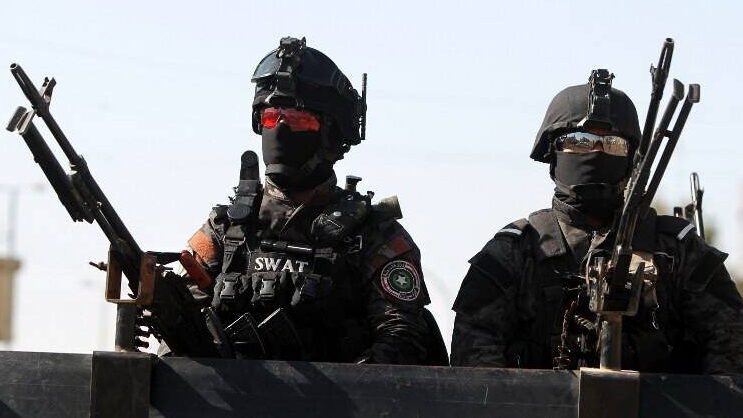Who is Abdul Rahman Yusuf al-Qaradawi?

Human rights organisations are urging Lebanon to cancel the imminent deportation of Abdul Rahman Yusuf al-Qaradawi to the United Arab Emirates, a staunch ally of Egyptian President Abdel Fattah el-Sisi, where they fear he may face politically motivated legal proceedings and even torture.
But who is Abdul Rahman and why is he being sought by multiple Arab governments?
The 55-year-old dual Egyptian-Turkish national is a poet and political activist working and living in Turkey.
He had been a major proponent of the 2011 Egyptian revolution that ended the decades-long rule of former Egyptian President Hosni Mubarak. He also worked on the campaign of Mohammed el-Baradei, the former head of the International Atomic Energy Agency, who ran for the Egyptian presidency after Mubarak's rule ended after the Egyptian revolution.
Abdul Rahman helped to establish the group Kefaya in Egypt, otherwise known as the Egyptian Movement for Change.
It was an initiative that long preceded the 2011 revolution but participated heavily in it, yet the International Crisis Group described it as largely ineffective toward structural change in Egypt because it functioned merely as a protest movement.
After 2011, Abdul Rahman was banned from broadcast appearances and publications in Egypt and went into exile - like many prominent figures who opposed the Egyptian authorities - in Turkey.
His sister, Ola, has spent four years arbitrarily detained in Egypt on what are widely believed to be unsubstantiated terrorism-related charges.
Read More »His father, Yusuf, who died in Qatar in 2022, was arguably one of the most prolific and published Islamic scholars and a household name in the Arab world.
While the elder Qaradawi long refused any official political roles in Egypt, he had an outsized intellectual influence on the Muslim Brotherhood, the primary opposition party in the country, which is now considered a terrorist group under the Sisi government.
As one of the most prominent ideologues associated with the Brotherhood, Yusuf and his teachings stood at the centre of pivotal global events.
Throughout his career as a public intellectual, his approach to Islamic law - one that combined scholarship and political activism - and his ability to communicate these ideas in plain language, earned him millions of followers.
Criticism of Gulf states
Abdul Rahman himself was most recently seen in online videos he posted of himself celebrating the removal of former Syrian President Bashar al-Assad in Syria.
At the site of the historic Umayyad Mosque in Damascus, walking around with a Palestinian black and white keffiyeh around his neck, Abdul Rahman called out the “Zionist Arabs”, referring to the leadership of the UAE, Egypt and Saudi Arabia, and indicated his hope that their governments may be toppled next by a “flood of change”.
The flood, he said, had already begun in Gaza, where the “Al-Aqsa Flood” operation was launched by Hamas on 7 October 2023.
Abdul Rahman's most recent post on his website, dated 25 December 2024, is a poem - “a lament for the martyr of the nation” - dedicated to the deceased Hamas leader Yahya Sinwar. He describes Sinwar as a man with “the determination of the universe in the hollow of his heart” who is “immortal”.
Abdul Rahman was arrested late last month at Beirut airport while travelling back from Damascus.
According to Amnesty International, Abdul Rahman “was interrogated by Lebanese security forces in relation to a 2017 verdict issued in absentia by an Egyptian court, convicting him on charges of spreading ‘false news’, among others, and sentencing him to five years in prison in a politically-motivated case, as well as the UAE extradition request”.
Several human rights groups are now calling for his release.
“This warrant is politically motivated and serves as a tool for suppressing dissenting voices, making Al-Qaradawi’s arrest part of a regional campaign targeting activists and intellectuals,” the Swiss-based Committee for Justice (CFJ) said in a statement on Tuesday.
The group urged the UN special rapporteur on torture and the UN special rapporteur on freedom of opinion and expression to pressure Lebanese authorities “to adhere to their international obligations, particularly concerning the principle of non-refoulement as stipulated in Article 3 of the Convention Against Torture”.
Such an extradition, the CFJ said, “poses a threat to everyone who believes in freedom of thought and expression - a right guaranteed by international charters such as the Universal Declaration of Human Rights and the International Covenant on Civil and Political Rights, to which Lebanon is a party”.



